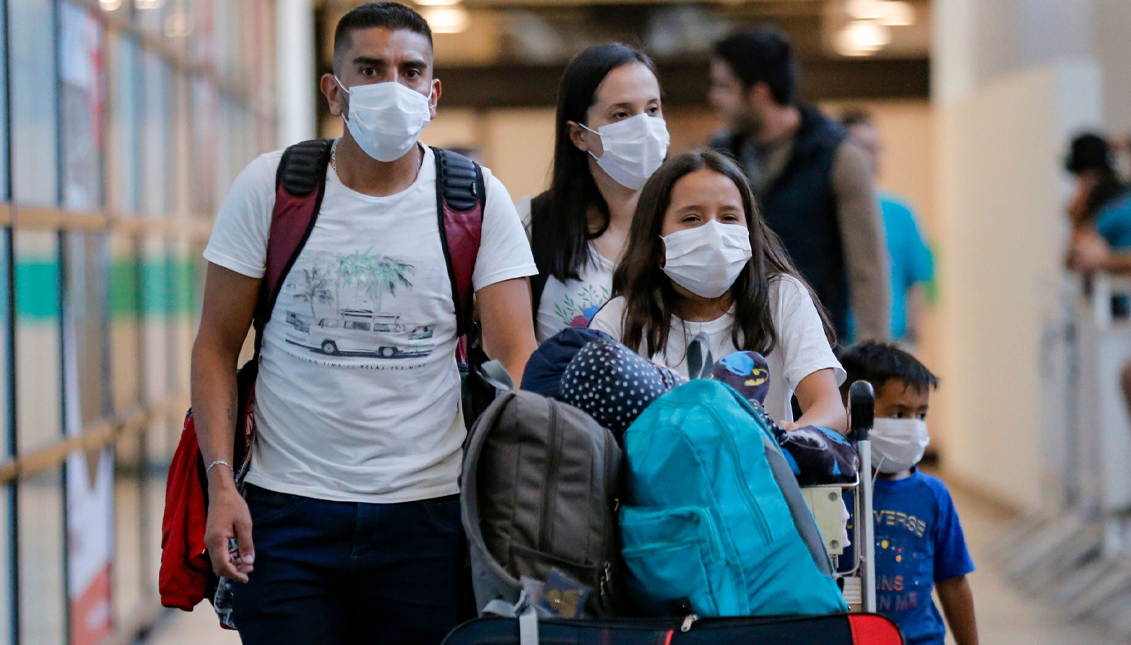
How Chile is handling the COVID-19 pandemic
Chile’s capital, Santiago, is lessening lockdown restrictions after months, but the country has the eighth-most cases in the world.
Last week, Chile’s Health Minister, Enrique Paris, announced that lockdown restrictions will be lifted for certain parts of Santiago.
The measures were eased in the more affluent and less populated areas of the country’s capital.
The local government has still taken it upon themselves to paint markers on sidewalks and crosswalks so people keep to their right and continue social distancing.
Tuesday, July 28, was the first day in months that residents could gather in small groups and leave their homes without needing police permission on weekdays.
Chile never went into a national lockdown, but has instead opted for dynamic lockdowns in specific parts where the virus was spreading rampantly.
Santiago has had some of the strictest measures in place since mid-March.
COVID-19 was of great concern to the city because many locals suffer from respiratory complications. This is brought on from Chile’s capital having poor air-quality because it is very industrialized and enclosed by mountains.
Nearly a third of Chile’s population is concentrated in Santiago and it is the sixth largest city in Latin America.
Shops have opened up in the richer neighborhoods that have reopened, but local residents are concerned because many of the people who work in those shops come from other parts of the city where the infection rate is still dangerously high.
For this and many reasons, more top health experts in Chile are afraid the country is starting to open up too early.
“They aren’t even following the recommendations of their own advisory committee which was created in order to make decisions based on science. We see that they’re ignoring science and the need to strengthen the ability to test, trace and isolate infections,” epidemiologist Maria Paz Bertoglia told Al Jazeera.
This is not the first time that Chile has tried to preemptively reactivate their economy. In mid-April, President Sebastián Piñera announced a plan titled “New Normality”
The plan sought to have public services and schools return to their normal functions as quickly as possible.
RELATED CONTENT
It was soon scrapped because the country was still weeks away from reaching its peak of cases and they did not flatten their curve until late June.
One of the reasons there was a hurry to reopen was massive unemployment.
Between March and May, 11.2% of Chileans were left unemployed from the pandemic and it is estimated that the country’s gross domestic product will decrease 7.5% by the end of the year.
Now Chile records the second-highest deaths per million inhabitants in all the Americas, second to neighboring Peru and above the United States.
The country of 19 million people is closing in on 350,000 confirmed cases and 9,300 deaths from the virus.
With many of the poorer areas of Chile still seeing rising case numbers and therefore blocked from returning to their normal lives, the national legislature has come up with an added measure that will help impoverished communities sustain themselves for a little longer.
The National Congress of Chile passed a bill earlier this week that would allow savers to withdraw 10% from their pension to alleviate financial burdens they are feeling from the pandemic.
Chile has had a privatized pension system since 1980 and the progressive opposition in Chile celebrated the passing of the new bill because it delivered a blow to president Piñera, who’s praised the model.
An unexpected 53% of Piñera’s center-right coalition also voted for the resolution.
Peru, who has a similar pension system, passed a bill in April that would allow its citizens to withdraw 25% of their private retirement funds.











LEAVE A COMMENT:
Join the discussion! Leave a comment.